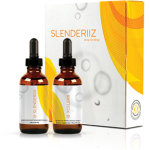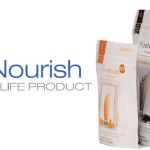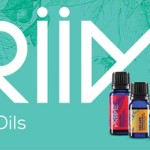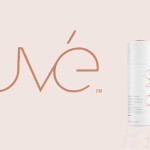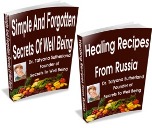Vitamins
To sustain optimal health we need a variety of vitamins,antioxidants,minerals and other micronutrients.
They are vital for bodily functions and prevention of disease.
You probably heard the statement:” I can get everything I need from food”
Are you?
In a large 26,000 person study it was concluded that not one person received the nutritional requirements set forth by RDA/recommended daily allowance/
“Unsufficient vitamin intake is apparently a cause of chronic diseases…Most people do not consume an optimal amount of All vitamins by diet alone.Pending strong evidence of effectiveness from randomized trials,it appears prudent for all adults to take vitamin supplements” American Medical Association
Before we go into discussion what vitamins, antioxidanst,minerals do for you, let us go back into history of vitamins and antioxidants.
History of vitamins and antioxidants.
The value of eating a certain food to maintain health was recognized long before vitamins were identified.
The ancient Egyptians knew that feeding a patient liver would help cure night blindness/illness now known to be caused by vitamin A deficiency/
In 1747, Scottish naval surgeon James Lind discovered that a nutrient in citrus foods prevented scurvy.He recommended to eat lemons and limes to avoid scurvy.
In 1884 Takaki Kanehiro, a British trained medical doctor of Japanese Navy observed that beri-beri was endemic among low ranking crew who often ate nothing but polished white rice,but not among crews of Western navies who were fed a diet of meat,fish,barley,rice and beans.This convinced Kanehiro that diet was the cause of beri-beri.
This was confirmed In 1897,when Christiaan Eijkman that feeding unpolished rice instead of the polished variety to chickens helped to prevent beri-beri in the chickens.
In 1906 English biochemist Sir Frederick Hopkins also discovered that certain food factors were important to health.
In 1912, Polish scientist Cashmir Funk named the special nutritional parts of food as a “vitamine” after ” vita”meaning life and” amine” from compounds found in thiamine he isolated from rice husks.
“Vitamine” was later shortened to vitamin.Together, Hopkins and Funk formulated the vitamin hypothesis of deficiency disease- taht a lack of vitamins could make you sick.
In 1937 Nobel laureate Albert Szent-Gyorgyi,M.D.,Ph.Dwho had discoverd vitamin C and the flavonoids,may have been the first scientist who attempted to raise the vitamin consciousness of his colleaques.His great interest was to determine the difference between the “minimum daily doses” of vitamins needed to prevent diseases and optimal doses.
By the mid-1940s Evan Shute,M.D.of Canada and his colleagues were using large,optimal doses of vitaminE to treat patients with a variety of cardiovascular diseases.
Around the same time,Frederick Klenner,M.D. of Reidsville,N.C. began to successfully treat a variety of viral diseases/including polio/
wiht large doses of vitamin C.
In 1952, Abram Hoffer,M.D.,Ph.D.,started treating schizophrenics with vitamin C and B3.
This was a new way of thinking about vitamins that they could be used to treat something besides classical vitamin deficiency.
DNA/deoxyribonucleic acid/which contains the biological blueprint of your body-was discovered in 1944.
A year later, Linus Pauling,Ph.D/ Nobel Prize in chemistry1954/. developed the concept of “molecular disease” .It is on the level of molecules,within the 60 trillion cells of the body,that our body actually ages,becomes dysfunctional and develops diseases.
Pauling described the theoretical foundation for nutritional medicine.”My life has been spent trying to make a difference in the human condition”http://lpi.oregonstate.edu
Another milestone occured in 1954,when Denham Harman , M.D.,Ph.D.,conceived the free radical theory of aging – an idea that,43 years later,medicine has embraced.His idea was simple: free radicals-atoms with unbalanced electron damage DNA and other cells components. Harman realized then that antioxidant nutrients,such as vitamins C and E,could neutralize free radicals.
Antioxidants have “extra” electrons that they can give to free radicals,which eliminates their harmful effects.
Antioxidants are sometimes primary function of certain vitamins and minerals,for example vit E and selenium
“Don’t underestimate the threat free radicals pose to your health.Scientists now believe that free radicals are causal factors in nearly every known disease, from heart disease to arthritis to cancer to cataracts.In fact free radicals are a major culprit in the aging process itself.By controlling free radicals,antioxidants can make the difference between life and death,as well as influence how fast and how well we age”
Lester Packer,Head of Packer Lab,Dept. of Molecular and Cell Biology,University of California at Berkeley.
Minerals and trace elements represent less than one- half of one percent of the total nutrients we consume every day.
Yes, without them our bodies would be unable to efficiently use the carbohydrates, proteins and fats .
Many vitamins and enzymes need a mineral co-factor to function properly.
What do vitamins,antioxidants,minerals do for you?
Let me give you just a few examples.
Vitamin A – prevents skin disorders,such as acne,wrinkling,age spots.Enhances immune system,protects against flu,cold,infections to kidney,bladder,lungs.
Vitamin B complex – are fundamental to energy production,metabolism,growth and maintains of normal homocysteine levels./lowers cholesterol levels/Enhances memory,concentration,plays important role in healthy sex hormones and fertility.
Vitamin C– the antioxidant ,critical to good health,prevent cancer,essential for collagen synthesis,which is essential for staying healthy and young/skin/,aids in production of anti-stress hormones,reduce levels of ” bad’ cholesterol .
VITAMIN D – supports bone and tooth formation,muscle,thyroid function,necessary for the absorption of Calcium and phosphorus,important in prevention of breast and colon cancer,osteoporosis,osteoarthritis.
Vitamin E – powerful antioxidant,helps maintain healthy DNA,important in prevention cancer and cardiovascular disease,retards aging,necessary for tissue repair,protects against approximately 80 disease
Minerals
Zinc – a component of hundred enzymes,involved in carbohydrate,protein and fat metabolism,supports normal fetus growth,important in prostate gland function
Selenium– vital antioxidant,especially if combines with vitamin Esupports a healthy immune system,plays important role in thyroid hormone metabolism ,supports pancreatic function.
Magnesium– plays important role in neuromuscular contractions,is an activator of hundreds of enzymethat are essential to life.
.
Chromium– helps to retain healthy glucose metabolism and healthy functioning of circulatory system.
Iodine– is a crucial component in the production of thyroid hormones
Copper– is an important antioxidant in cell function,acts as a catalyst in the formation of hemoglobin.Essential for collagen production.
Manganese– needed for protein and fat metabolism,blood sugar levels,used in the formation of cartilage and lubricating fluids of the joints.Works well with B vitamins to give an overall feeling of well-being.Aids in the formation of mother’s milk
Vanadium– needed for cellular metabolism,required for the formation of bones and teeth,improves insulin utilisation.
And the list can go on and on.
I assume that after reading this information you would agree that vitamins,minerals ,antioxidants are essential to our lives.
There are following reasons why supplementation with vitamins,minerals and antioxidants is necessary:
- crop nutrient losses- decades of agriculture have overworked and depleted soils of minerals
- environmental factors-pesticides and herbicides are used on crops,leaving them with low nutritional value.
- poor lifestyle habits- smoking,alcohol,caffeine can inhibit absorption of vitamins and minerals.
- stress-increases the body’s requirement of vitamins and minerals.
- food storage- length of storage and freezing depletes the nutritional value of most foods.
- food selection- eating a too limited range of food groups.
- overcooking- can easily destroy valuable food nutrients
- microwave cooking-studies suggest that microwave cooking alters the nutritional structure of food
- poor digestion- eating too much or too quickly and stress can cause indigestion,which reduces absorption of nutrients.
- food omission- allergies to food,crash dieting and poorly designed vegeterian diets decreases significant sources of nutrients.





